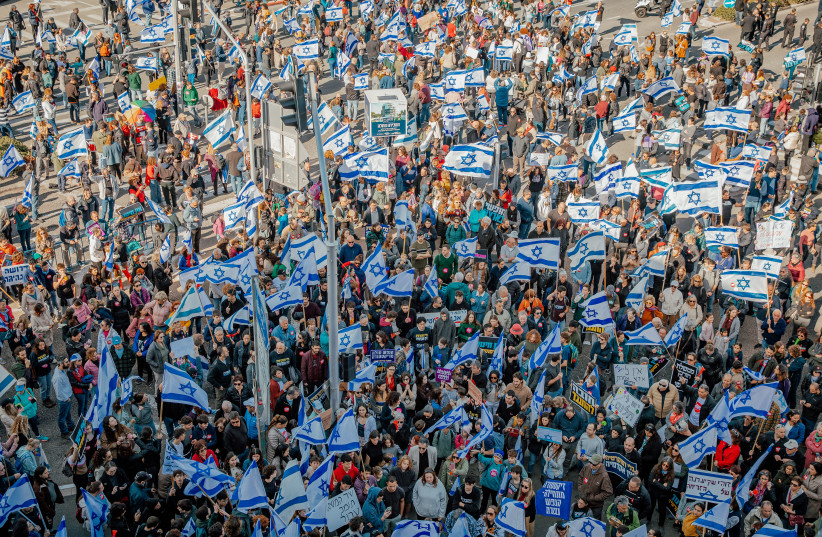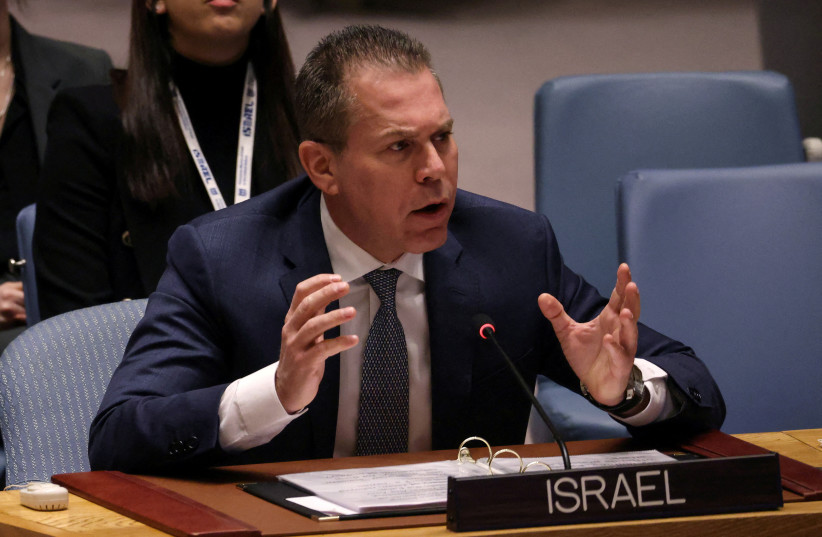The UN High Commissioner for Human Rights Volker Turk has expressed concern that the proposed judicial reform currently being discussed by the Israeli government would pose "serious risks to the effectiveness of the judiciary to defend the rule of law, human rights and judicial independence."
The two judicial reform bills that passed a first vote in Knesset late Monday night both deal with amending preexisting laws, including altering the Courts Law, which sets regulations for the courts.
One of the bill's key components will add restrictions on the judicial review of Basic Laws. Judicial review refers to when a court strikes down legislation that it determines is in contradiction with a law that has legal supremacy.
Israel lacks a formal written constitution, but it follows quasi-constitutional Basic Laws. The High Court of Justice normally does not interfere with the Basic Laws, but it hears petitions challenging an untoward process in which a Basic Law amendment or bill was legislated and other abuses of the Knesset’s constitutive authority.
“Given the degree of public and political concern, I call on the Government of Israel to pause the proposed legislative changes and open them up for wider debate and reflection."
Volker Turk, UN High Commissioner for Human Rights
The bill would restrict the High Court from accepting petitions, let alone reviewing articles pertaining to Basic Laws. It would not be able to address the validity of a Basic Law, directly or indirectly.

Referring to these points, as well as to the way in which the bill will change the composition of the Judicial Selection Committee, Turk said that "breaking from decades of settled practice, such a law would drastically undermine the ability of the judiciary to vindicate individual rights and to uphold the rule of law as an effective institutional check on executive and legislative power.
“Experience in Israel, and around the world, has shown the enduring value of a judiciary that can independently hold the other branches of Government to the fundamental legal standards of a society set out in its basic laws," he added.
Expressing his concern for those who may be most affected by the change to the judicial system, Turk said that "these changes risk weakening human rights protections for all, but especially the most vulnerable communities and groups less able to vindicate their rights through representation in the executive and legislative branches of Government."
The statement went on to say that those who may be most affected by the laws include Arab Israelis, asylum seekers and the LGBTQ+ community.
“Given the degree of public and political concern, I call on the Government of Israel to pause the proposed legislative changes and open them up for wider debate and reflection," The human rights commissioner concluded.
"Such issues at the heart of rule of law deserve the fullest consideration in order to ensure that any changes promote, rather than diminish, the ability of the judiciary - and other branches of Government - to protect the rights of all people in Israel."
'No validity, legal or moral' to intervene in Israeli affairs
Israeli Ambassador to the UN Gilad Erdan responded to Turk's concerns, criticizing him for intervening in Israel's internal affairs.
The UN High Commissioner for Human Rights is "the last person who can teach Israel what democracy is," said Erdan. "His statement has no validity, legal or moral, and he has no right to intervene in Israel's internal affairs.

"The Human Rights Council is a body in which Israel has been subjected to extreme evil for many years, it is a body in which antisemitic investigative committees have been set up against Israel, and Israel has never recognized its moral authority," he continued.
"I suggest that the commissioner works on the protection of human rights in Syria, the murder of women and protesters in Iran, the persecution of the gay community in the Palestinian Authority, and a long list of terrorist organizations and the grave crimes of dark regimes, of which he and his council routinely ignore before he intervenes and preaches morals to the only democracy in the Middle East."
Israel's Prime Minister's Office said in response, "The UN's Human Rights Council is a biased and uninfluential body. Instead of condemning the recurring human rights violations in Iran, Syria, the Palestinian Authority and many other places in the world, there are those in the council who decided today to criticize the State of Israel for deciding to conduct a reform that will only strengthen democracy in Israel. What an absurdity."
Eliav Breuer and Michael Starr contributed to this report.
